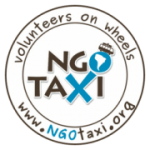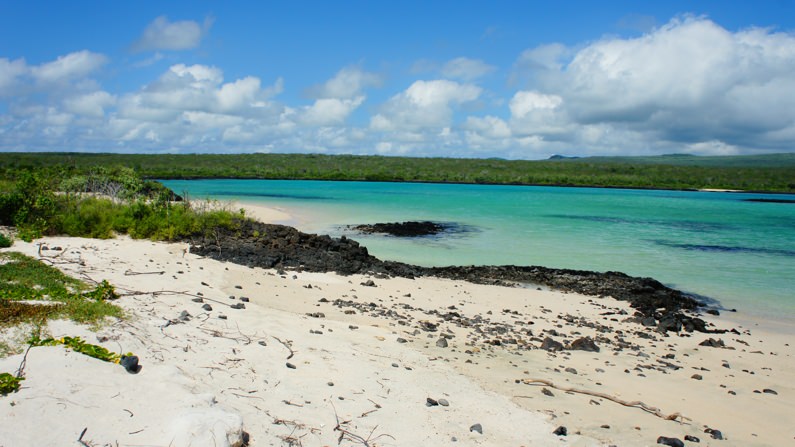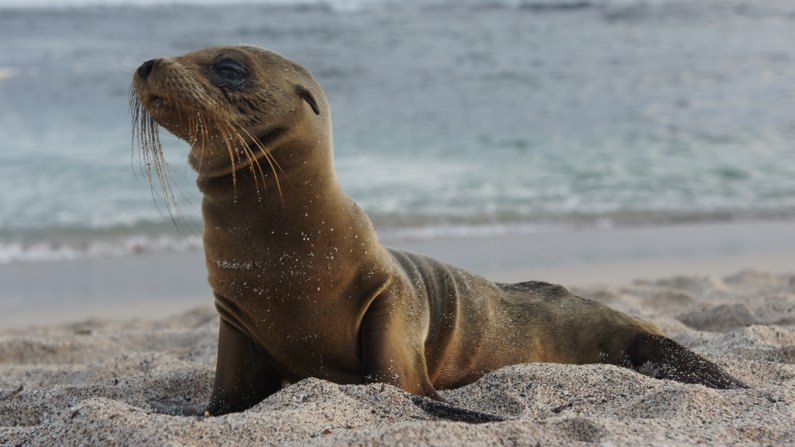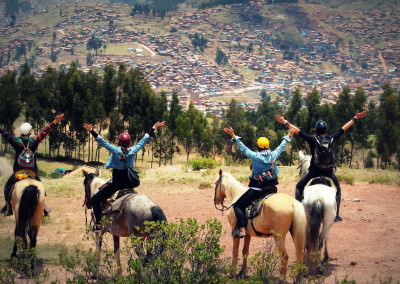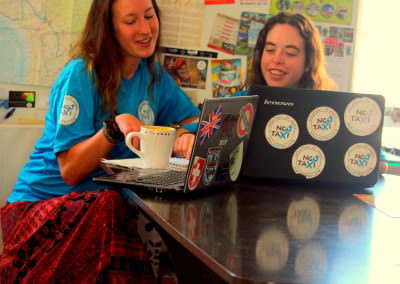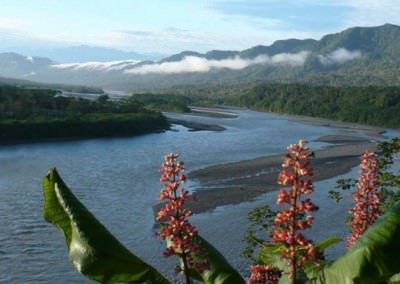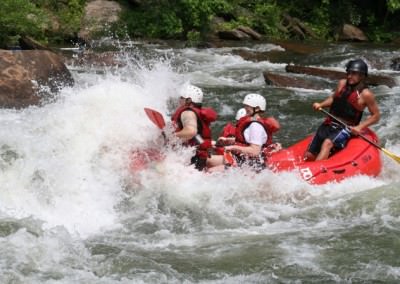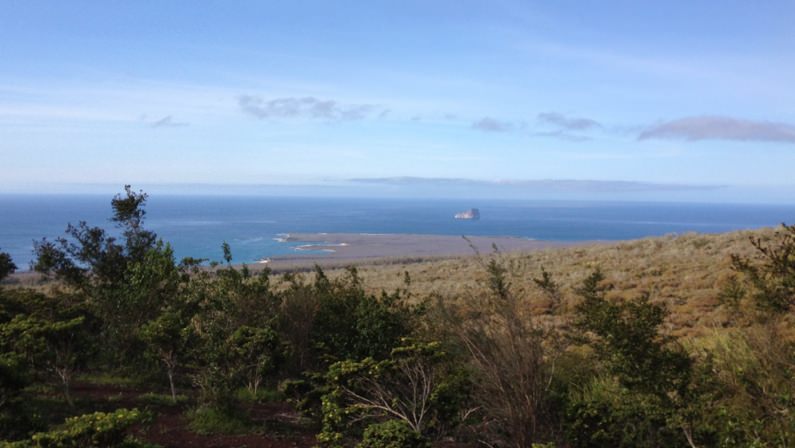
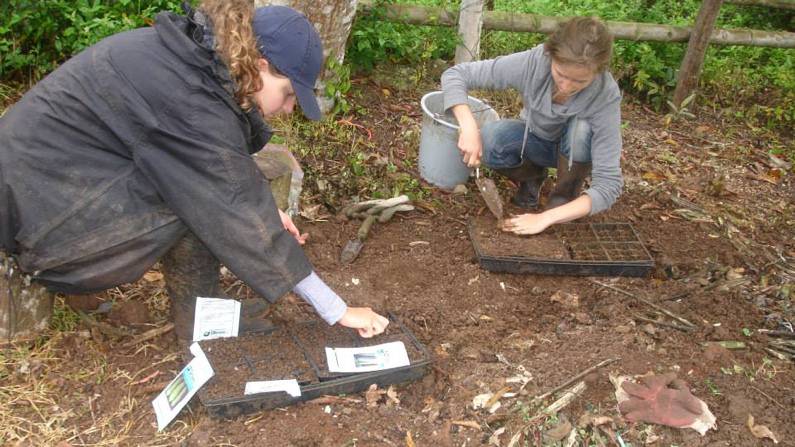
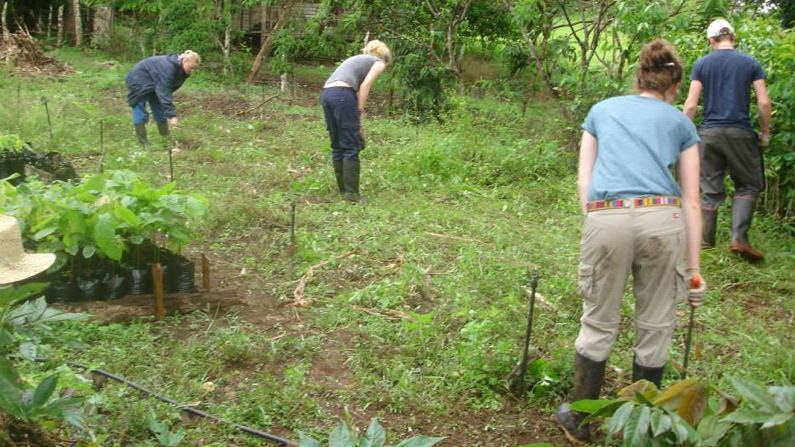
Camp Darwin: Environmental Conservation and Protection (Galapagos Islands Ecuador)
Follow in Darwin’s* footsteps and experience the exceptional ecological biodiversity and pristine natural view of the world that can only be offered by the isolated, uniquely-placed terrain of the Galapagos at our environmental conservation camp. As one of our volunteers you will help to protect and nurture some of the rarest and wildest species of flora and fauna in existence.
Join us to enjoy living with the land, growing plants, interacting with the community and an exciting personal journey back into the very foundations of evolution.
*Darwin made this unique archipelago famous by accrediting it for the inspiration and discovery of his theory of evolution. The islands lie almost 1000km from the mainland, creating an evolutionary hotspot where species could occasionally fly, float, or swim over, but were still far enough away to evolve separately into entirely different beings, thus creating a true wonder of nature.
DETAILS
Project Description
Problems:
The rare, native plant species of the Galapagos are at risk of becoming extinct because they are being outgrown and choked out by non-native species which have gradually been introduced since humans began settling on the islands. These non-native species overrun farms, damaging livelihoods and the natural balance of the environment which many rare and endangered Galapagos wildlife such as tortoises, hawks, iguanas, mockingbirds and finches depend on for survival.
Due to its remote location, the Galapagos does not have access to the same level of public care and social institutions that are available on the mainland. There is therefore a huge demand for social and community support. Most of the volunteer programs currently running on the islands are focused on wildlife conservation and neglect the problems of the people. The few programs that are dedicated to social issues pay no attention to the environment. There is therefore a great need for projects that encompass both of these problems and work in a balanced way with both the environment and the people.
Solutions:
This project reaches out and accelerates environmental accomplishments on the island as well as green growth: restoring endemic forests while protecting vulnerable farmers from invasive species. At the same time, it provides the community with improved access to necessities such as water, therapy, education, and intercultural exchanges of ideas, values and love for our planet.
By participating in this project, along with plant conservation and farming, volunteers will also assist with the free therapy using horse-back riding that the project provides to local disabled children and entertain local children who are invited to the camp to play, learn, horse-ride and hike. Through this type of social interaction the community can enjoy and connect with nature and is being instilled with environmental education and consciousness.
Because we work with community, environmental, and social issues, this project is the most complete, unique, helpful and of course charming on the Galapagos Islands.
Objectives:
This project aims to:
- Rehabilitate areas of land so that Galapagos tortoises can by reintroduced and survive.
- Help local farmers learn about and implement careful removal of non-native species and replanting of native species.
- Improve access to basic necessities for the local community.
- Create a bond between the environment and the community.
- Provide therapy for local disabled people using horse-back riding (hippotherapy).
- Grow organic food for donation to organizations that work with vulnerable children.
- Provide an inspiring, educational and enjoyable opportunity for volunteers to learn about and protect some of the most unique and exceptional wildlife in the world.
- Protect and conserve this truly magical and irreplaceable natural environment so that its wildlife can continue to flourish and its splendor can be enjoyed by all.
Volunteer Responsibilities
You will grow and nurture native plant species in greenhouses and then plant them into their specified locations after having removed the non-native species from each site. You will also assist in community projects, such as installing water pipelines, helping to paint the local library and working with local children on educational gardening projects and field-trips. The work involved is physical so you should be prepared for long, hard and hot but fun and rewarding days.
The following are some areas of the project that you may assist with:
Reforestation: The project’s program has helped to plant 1,855 trees in three different areas of the island to protect endangered species. Volunteers have created a nursery with plants to be transplanted and distributed to schools and farmers in the community. You will help restore native and endemic forests to increase the natural harmony and tranquility of the island. Additionally, this project has planted 750 trees of two types of species, Manzanillo and Matarzarno, which capture carbon dioxide from the atmosphere. Of this quantity, 250 are Manzanillo, with each tree capturing 470 kilograms per year, and 500 are Martazarno, with each tree capturing 148 kilograms per year. In total, the two capture 191 tons of CO2 from the atmosphere each year.
Self-sustainable agriculture: This program helps 15 families (approximately 50 people) of the community to recover their abandoned farms. Together with local staff you will help cultivate the farms so that farmers can grow organic products and increase local production. Local production will prevent the excessive importation of fresh fruits and vegetables; thus, reducing the entrance of introduced species that endanger the endemic ecosystems.
Children: Part of this project is the program of hippotherapy that uses activities on horses that are therapeutic for the children of the Ecuadorian National Institute for Children and Family. Over the last four years, 180 disadvantaged and disabled children have been helped. Volunteers have also helped furnish the school in the community and organized materials for English language learning.
Growing Coffee: Want a fresh cup of coffee straight from the Hacienda’s own plantation? You can help out in the entire process, from start to finish, and enjoy this rewarding and delicious experience! You can help with:
- Cleaning the area around the coffee plants.
- Collecting beans.
- Washing beans.
- Peeling beans.
- Drying beans.
- Grinding beans.
- Drinking coffee!
Here is an example of a successfully completed community project:
Community water access: Local staff and volunteers worked for over 1 year to bury 8 kilometers of piping along rough terrain, in order to supply water for the community which is vital for personal hygiene and agriculture.
The exact tasks you will be asked to carry out will depend on the current needs and priorities of the project as determined by the camp manager and NGO Taxi management. The tasks stated here are therefore examples of some of the possible types of activities you will be asked to do. Some of the example tasks may include:
- Cutting plants and bushes with a machete.
- Cultivating and planting seedlings.
- Organic gardening.
- Helping farmers plant native and endemic vegetation.
- Construction work.
- Community work.
- Horse therapy with children.
Working hours:
You will usually work from 8:30am – 12:00pm and 2:30pm – 5:00pm, Monday-Friday. You are free to explore the local towns and discover the island’s many tourist attractions in the evening and on weekends.
Location
You will be living and volunteering at a beautiful ranch on a 50 hectare plot of land which is part of a small community of family farms on one of the wonderful 18 volcanic islands of the Galapagos, San Christobal. The total landmass of these islands is over 8000 square kilometers, of which 97% is designated national park and is only accessible with a compulsory, certified National Park Service guide.
The 70000 square kilometers of ocean surrounding the islands is a recognized and protected whale sanctuary and is home to humpback whales, sea lions, sea turtles and an incredible variety of vibrant sea life. The best part is that the unique variety of endemic animals and birds are completely calm and relaxed when interacting with humans, allowing them to be observed in their natural habitats and for you to enjoy fun and sometimes surprising exchanges with them.
In 1978, the Galapagos became a world heritage site which includes both the Galapagos National Park and Marine Reserve. From 2007 until 2010, the Galapagos was on the World Heritage in Danger list. Since the site was endangered so recently, it is therefore even more important to conserve and protect these islands for the future. The Galapagos has also been designated as a UN biosphere reserve for its natural attributes to be conserved and to serve as an international center for scientific research.
Transportation
A member of our team will meet you at the nearest airport on the island and take you for a quick tour of the town before heading to the camp. There is no public transportation like a bus system, but it’s only a 30min walk or 10min taxi ride (aproximately 7 USD) into the nearest town.
Accommodation and Food
Accommodation will be provided in the house on the beautiful site of the camp and includes a full kitchen, bathroom, shower with hot water and plenty of drinking water. Sheets and mosquito nets for the beds are also provided. The accommodation can host up to 22 volunteers. You will be sharing rooms and responsible for cleaning the facilities you use together with other volunteers.
The camp maintains its own organic garden and also has orange, banana and avocado trees which are free for everyone to share and enjoy! Milk, cheese and coffee are also often produced at the camp and available to volunteers. Any additional food required can be bought in the local towns. Volunteers buy and prepare their own meals or usually agree a schedule to cook together with other volunteers.
Prerequisites
Professional requirements:
As a volunteer you don’t need any special, professional requirements, since there are plenty of activities for which no previous experience is needed. All you need is a sincere interest in nature, the desire to help out where needed, genuine commitment, an openness to explore new fields of interest and a desire for personal enrichment, as well as a minimum stay of 2 weeks (maximum stay is only 3 months!). This project is a great opportunity to learn a lot about Galapagos plant life! Theoretical or practical experience in forestry, agriculture, horticulture, and craftsmanship are greatly welcome.
This project supports and encourages teamwork along with a great deal of flexibility, autonomy and initiative. If you are open and ready for it, you’ll learn how to deal with various aspects of daily life and be able to adapt to different fields of activity.
Generally, you should be ready to respond to changes and be able to deal with the unexpected for any work in South America.
Language requirements:
At the camp you don’t necessarily need to speak Spanish as most of our team members speak English. However, it always helps to be able to communicate when working and travelling in any country to enhance the depth and authenticity of the experience, interact with the locals and meet people. Foreign language skills will always help you in life, with regards to your career prospects and to help you create deeper bonds with people and places. If you are interested in also booking a language course just let us know and we can arrange everything for you in Quito! Please ask for information about availability and prices with your volunteer application.
Additional Information and Specials
Minimum age:
18 years
Start Dates:
1st or 3rd Sunday each month.
(Individual arrival dates possible, surplus applies).
Length of stay:
Minimum 2 weeks, up to a maximum of 2 months on the Galapagos Islands due to the internal law of the Galapagos Islands.
Immunizations:
Since you’ll be coming into contact with exotic wildlife, it is absolutely necessary that you have current immunizations. This includes, among others: yellow fever (certified), tetanus, typhoid, diphtheria, hepatitis A and B, and rabies. You’ll receive exact information pertaining to immunizations needed on the Galapagos/Ecuador, as well as your personal preliminary documentation, following your successful application with us.
You can inquire in advance concerning immunization requirements by consulting medical authorities in your country of origin, e.g. in the US, check with the Centers for Disease Control and Protection
http://wwwnc.cdc.gov/travel/destinations/traveler/none/ecuador.
Please make sure that you have up-to-date vaccinations for all of these diseases. NGO Taxi cannot be held responsible for the provision of vaccinations for their volunteers. It is the responsibility of the volunteer to ensure that they have followed up-to-date medical advice.
Special conditions:
Due to its remoteness on the island and for the sake of the protection of its natural and almost untouched beauty the project site does not offer any Wifi. Depending on the day’s weather around the islands cell phone coverage might not be available either, but there are three internet cafes that welcome you in town nearby!
Included services:
- Pickup service from the airport on the Galapagos.
- Accommodation with communal cooking area.
- Free fruit and sometimes fresh local milk at the project site, etc. (see section Accommodation and Food).
- T-shirt, hat, working gloves and rubber boots.
- Pre-arrival pack and information materials.
Excluded services:
- Pickup from the airport in Quito (If you wish to be picked up from the airport in Quito and brought to a hostel or hotel please let us know. You will only pay for the cost of the taxi but not for the pick up service.)
- Meals are excluded, but you can buy your own food at the grocery stores in town and use the local cooking facilities together with other volunteers at project site.
- International flight.
- National flight to the Galapagos Islands (approx. 500 USD).
- Entrance fee to the Galapagos Islands (100 USD).
- Immigration card (10 USD).
- Language courses.
- Personal spending.
- Any additional items not listed in the ‘Included Services’ list.
Sometimes you will find that you are there are only one or two volunteers at the project, whereas at other times there may be large groups, so be prepared for variety in your experience and the people you will meet and work with.
But why not volunteer with your best friend?!
Tell us with who you want to volunteer with and we will arrange everything for both of you!
Free Time Activities
The Galapagos islands are a great place to explore and do many activities including:
- Scuba diving.
- Snorkelling.
- Hiking.
- Mountain biking.
- Horseback riding.
- Kayaking.
- Swimming with turtles.
- Island hopping.
- Watching the archipelago’s precious and distinct wildlife and flora, e.g. giant tortoises, sea turtles, rare birds, blue footed boobies, pelicans, sea lions, marine iguanas, sharks, gigantic rays and many many more.
You can go island hopping at the weekends. Just take one of the small speed boats and enjoy the neighboring islands, marvel at their unique natural wonders and the diversity between islands, and discover the islands’ many tourist attractions!
Due to its remoteness and protected wildlife far out into the pacific ocean, the Galapagos is considered one of the best and most breathtaking scuba dive spots on our planet. If you haven’t started diving yet you will surely have an unforgettable time underwater there! This is an extremely unique chance to explore a vibrant world that only exists underwater and on the Galapagos. Ask us and we would be extremely happy to put you in contact with dive schools.
Galapagos Islands, Ecuador
Included Services
- Accommodation + 2 meals per day.
- Pickup and transport from airport.
- Pre-arrival pack.
- Welcome dinner.
- Complimentary t-shirt.
- Hat, gloves and rubber boots for work.
- 24 hour support.
Pricing
Start dates: Every 1st and 3rd Sunday of the month.
€ 1200,00 – 1st week
€ 1149,00 – 2nd week
€ 1099,00 – 3rd week, and after
Individual camp start dates:
+ € 150,00 – Start your placement any Sunday of the month
+ € 250,00 – Chose your own start dates and change them up to 3 times before your trip.*
*Last date change up to 3 weeks before your departure.
Individual camp dates:
+ € 150,00 – Start your placement any Sunday of the month
+ € 250,00 – Chose your own start dates and change them up to 3 times before your trip.*
*Last date change up to 3 weeks before your departure.
** Maximum stay is of 8 weeks
